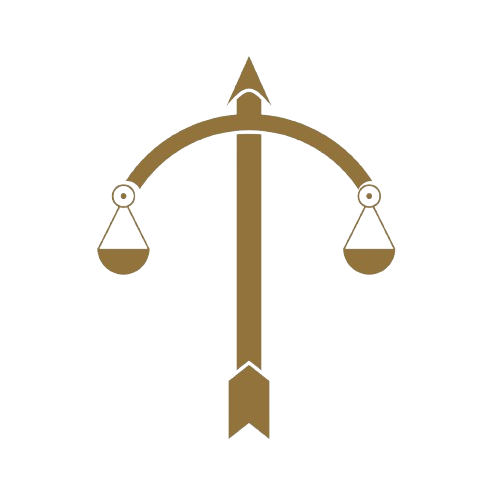The Right to Be Forgotten- How Law Balances Memory and Privacy Online
The internet remembers everything, but should it? The “right to be forgotten” has become one of the most debated ideas in modern privacy law, as courts try to balance personal dignity against the public’s right to know. This article looks at how that balance is being struck, and what it means for life in the digital age.
The internet has changed what it means to have a past. Everything we’ve ever posted, said, or been written about can resurface years later with a single search. The result these days is that old mistakes, outdated news, or irrelevant records can stick around indefinitely, often long after they’ve lost any real significance.
That permanence can cause real harm. People who have moved on in life can find themselves trapped by a search result that refuses to fade. Out of that tension, the “right to be forgotten” was born: a legal idea that says sometimes, privacy should outweigh permanent publicity.
Where it all started
The concept took shape in Europe. In 2014, the Court of Justice of the European Union (CJEU) decided Google Spain v. AEPD and Mario Costeja González, a case that changed online privacy forever.
Mario Costeja, a Spanish citizen, wanted Google to remove search links to a decades-old newspaper notice about his past debts. The debts were settled, but the story still appeared every time someone searched his name. The Court agreed that individuals could ask search engines to remove results that were “inadequate, irrelevant, or no longer relevant.”
That decision became known as the “right to be forgotten.” It gave people some control over how they appeared online, not by deleting content, but by delisting it from name-based searches.
How it works in practice
The right to be forgotten doesn’t mean deleting history. The original article or record usually stays online. What changes is visibility: Google and other search engines remove the link when someone searches for a person’s name.
The logic is that search engines amplify harm. They turn forgotten details into headline results. By making information harder to find, the law softens the impact of the internet’s perfect memory without rewriting the past.
Of course, this creates tough judgment calls. Who decides what’s “irrelevant”? Google and other data controllers must weigh privacy against the public’s right to know, case by case.
Privacy versus the public’s right to know
That balance is where most of the debate lies. Free speech advocates and journalists argue that removing links risks censorship or even historical revisionism.
Courts have responded by limiting the right’s scope. In NT1 & NT2 v Google LLC (2018), the UK High Court drew a distinction between two men seeking to have past criminal convictions delisted. One succeeded, as his offence was minor and dated; the other failed, because his wrongdoing was serious and still relevant to the public.
The message was clear: privacy rights are strongest when time and context make information unfairly harmful, not when they would hide genuine matters of public interest.
Different approaches around the world
Europe has led the way, building the right to be forgotten into the EU General Data Protection Regulation (GDPR) as the “right to erasure.” Japan and South Korea have adopted similar ideas, while Argentina recognised it early in its own privacy framework.
The United States, however, has taken the opposite path. With the First Amendment protecting free speech above almost all else, American law is deeply skeptical of any right that might delete or obscure lawful information. There, reputation is defended through correction and counter-speech, not erasure.
That philosophical divide highlights a cultural difference: Europe sees privacy as a foundation of freedom, while the US sees open expression as its core.
Challenges of the digital world
Even in Europe, applying the right to be forgotten isn’t simple. Search engines receive hundreds of thousands of requests each year. Many involve grey areas, including the likes of outdated court records, minor news stories, or unflattering but accurate articles.
Technology also makes deletion nearly impossible. Information spreads across platforms, backups, and cached pages. AI systems can regurgitate forgotten data from training sets. Once something enters the digital ecosystem, removing every trace is almost impossible. The right to be forgotten is really a right to reduce harm, not erase it completely.
Public figures and accountability
The right becomes most controversial when it involves public figures. Should a politician be able to hide old scandals? Should a CEO erase stories about past business failures? Courts have been cautious.
The CJEU has ruled that delisting should not automatically apply worldwide, and that privacy claims must yield when information is clearly of public interest. The goal is to balance dignity and accountability, not to let the powerful control their online history.
A human right for the digital age
At its heart, the right to be forgotten is about fairness and dignity. It acknowledges that people grow and change, and that the internet’s memory can be unforgiving. It also forces society to think harder about what should remain permanently visible.
Critics are right to warn that erasure can hide truths. But there’s another kind of danger in permanent exposure: when the internet never forgets, redemption becomes impossible. The law is trying, imperfectly, to restore a little humanity to a system that never sleeps.
The right to be forgotten is not a right to erase history. It is a right to be seen as who you are today, not who you once were. Courts are still working out the details, but the principle is clear: privacy is not the enemy of truth, only of permanence.
In a world where every story lives forever online, that balance between memory and mercy may be one of the defining legal challenges of our time.

